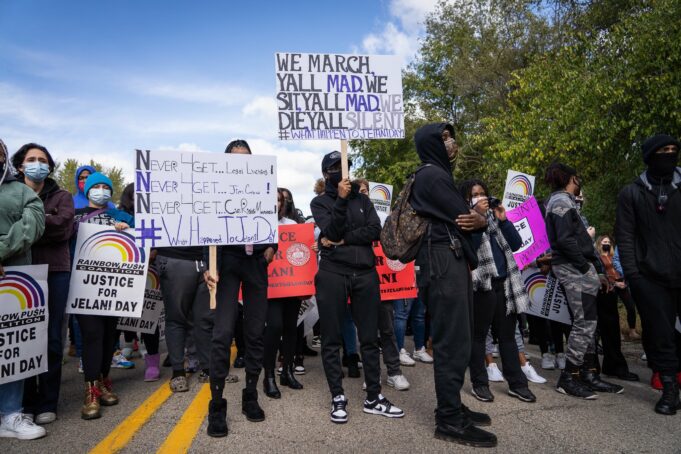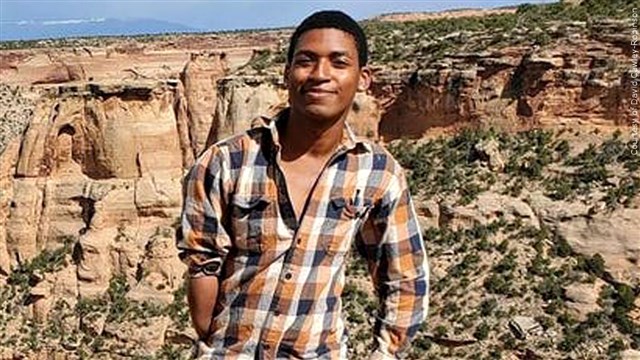Daniel Robinson was born without a right hand, but he didn’t let that become a handicap for him. His father, David Robinson, described him as very outspoken, as someone who easily makes friends and as someone who doesn’t give up on what he wants to do.
“His mindset is a go-getter. He decided to be a geologist when he got to his freshman year in college. He went after that dream and that goal and he graduated with honors. He’s an adventurous type of man, and he likes to travel,” David Robinson told The Final Call in a recent interview.
He said his son “brings people together. Just his nature and his spirit.” Now, the 24-year-old geologist is missing. Mr. Robinson had been searching for his son on a weekly basis for 14 weeks.
Daniel Robinson was last seen on the morning of June 23 near a desert worksite in Buckeye, Ariz., which is about 35 miles away from Phoenix. One month later, his jeep was found wrecked in a ravine with his clothes, phone, keys and wallet inside. The airbags were deployed.
In July, the Buckeye Police Department told local media outlets that no foul play was suspected, but Jeff McGrath, an independent investigator hired by the Robinson family, pointed out to a news outlet that the side of the jeep had red paint, but that “there’s no paint in this area,” referring to the desert.
“That’s why I’m saying the vehicle did not crash here. The vehicle, its last place of rest was here, but something was going on with that vehicle,” the investigator said.
Co-workers reported to the police that Daniel Robinson spoke oddly before he left the job site that morning.
David Robinson has organized search parties for his son every Saturday from 6:45 a.m. to 11 a.m. He said he plans to extend the search from the desert to the cities of Arizona.
“We’ll be looking for volunteers for that soon, to cover the homeless populations and things like that. Try to see if I can get someone checking in every city in Arizona,” he said.
He remarked that everything has been equally challenging, but that one of the most important parts has been getting the Buckeye Police Department to recognize the seriousness of his son being missing. He is trying to get the department to upgrade the case from a missing person to something insinuating criminal activity. Another challenge, he said, has been to get enough people and resources to cover the vastness of the desert, but he has been unable to get support via a GoFundMe.
Jelani Day
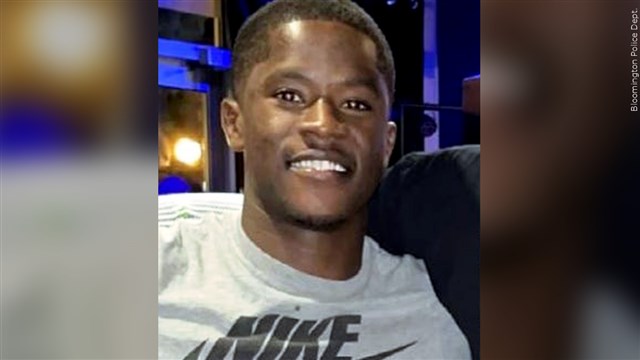
The last time Jelani Day’s family heard his voice was Aug. 23, and the last day he was seen was Aug. 24, according to media outlets. His family reported him missing a day later. A day after that, his car was found in the woods of Peru, Ill. His body was recovered from the Illinois River on Sept. 4 and was identified on Sept. 23 using DNA and dental records. About a month later, on Oct. 25, the LaSalle County Coroner ruled his death a drowning. According to media outlets his body was severely decomposed, and his organs were liquid.
Jelani’s mother, Carmen Bolden Day, has been demanding answers. On the Facebook page “Justice for Jelani Day,” she questioned the coroner’s ruling on cause of death. She stated that her son was an avid swimmer and that he never showed any of the indicators of suicide, such as suicidal attempts and mental health issues. She also posed several questions to the police department, including what cameras they checked within a 48-hour timeframe, who they questioned and what effort they made within the first 48 hours of him being missing? At the end of the post, she said she needs the Illinois Attorney General, FBI and the Department of Justice to take over the case.
The family held a march for Jelani Day on Oct. 26, hosted by the Rev. Jesse Jackson, Sr. and the Rainbow Push Coalition.
“The location where the car was and how they said where the body was found, where they said the clothes were found, where they said the wallet was found, where they said the lanyard was found, none of these are in a proper distance,” Ms. Day said at the march. She suspects foul play. “None of these would be anything that Jelani would have purposefully drove his car to, took off his license plates, not have his phone, throw away his keys, take off his clothes and go into a river. Jelani wouldn’t have done that,” she added.
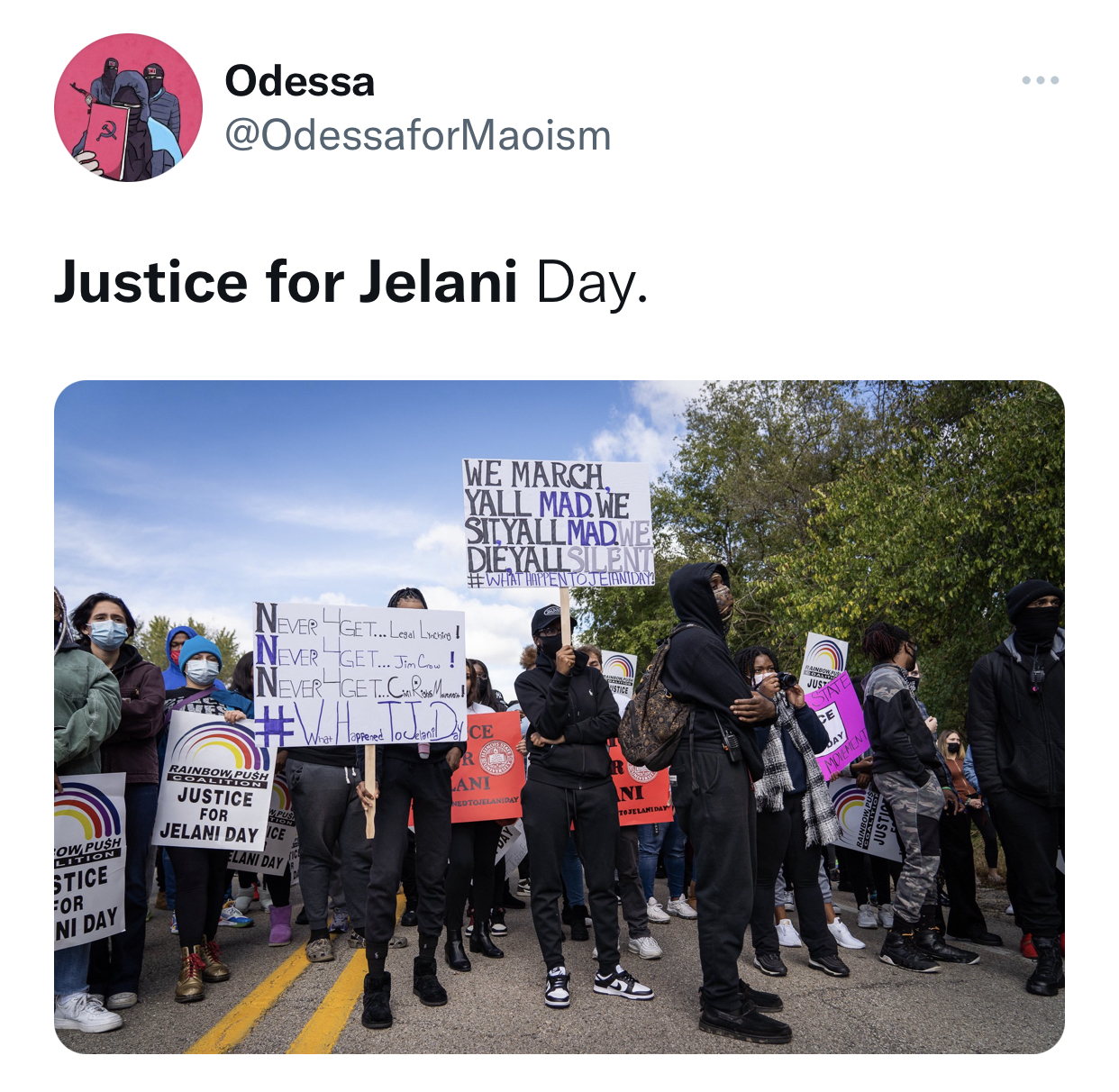
According to ABC-7, Chicago investigators said Jelani was last seen Aug. 24 at 7:20 a.m. at the student center on campus. The same day, at 9:12 a.m., he was spotted on surveillance video at the Beyond Hello cannabis dispensary in Bloomington. That’s the last known image of him,” reported ABC-7 Chicago.
Racial disparities in cases of missing Black folks
U.S. Representative Bobby Rush (D-Ill.) has called for a federal investigation into Jelani Day’s death. “As I learned the details of Day’s case, I was reminded of the lynching of Emmett Till, whose body was found floating in a river in 1955 and still, decades later, no one has been held legally accountable for his death. The circumstances surrounding Day’s death are strikingly similar to past lynchings of Black Americans, both male, and female,” he wrote in a letter directed to Attorney General Merrick Garland and FBI Director Christopher Wray.
Rep. Rush also pointed out how the FBI “aggressively pursued justice” for Gabby Petito but how Black people do not get the same urgency. Gabby Petito was a young White woman who disappeared during a cross-country road trip with her boyfriend in August. Her body was later recovered in a national park in Wyoming, and a coroner ruled she died by strangulation.
“The urgency of these cases and our continued shared interest in justice are the most compelling reasons to launch a Federal investigation into the disappearance and death of Jelani Day and the increased number of victims of color around the country,” Rep. Rush wrote. “It is critical that you do everything in your power to ensure that all missing people are afforded the same level of attention, regardless of their race.”
Black people are 13 percent of the U.S. population, but they make up about one-third of missing persons reports, according to 2020 data from the FBI’s National Crime Information Center. Derrica Wilson, co-founder of the Black and Missing Foundation, spoke to The Final Call about some of the racial disparities when it comes to missing persons.
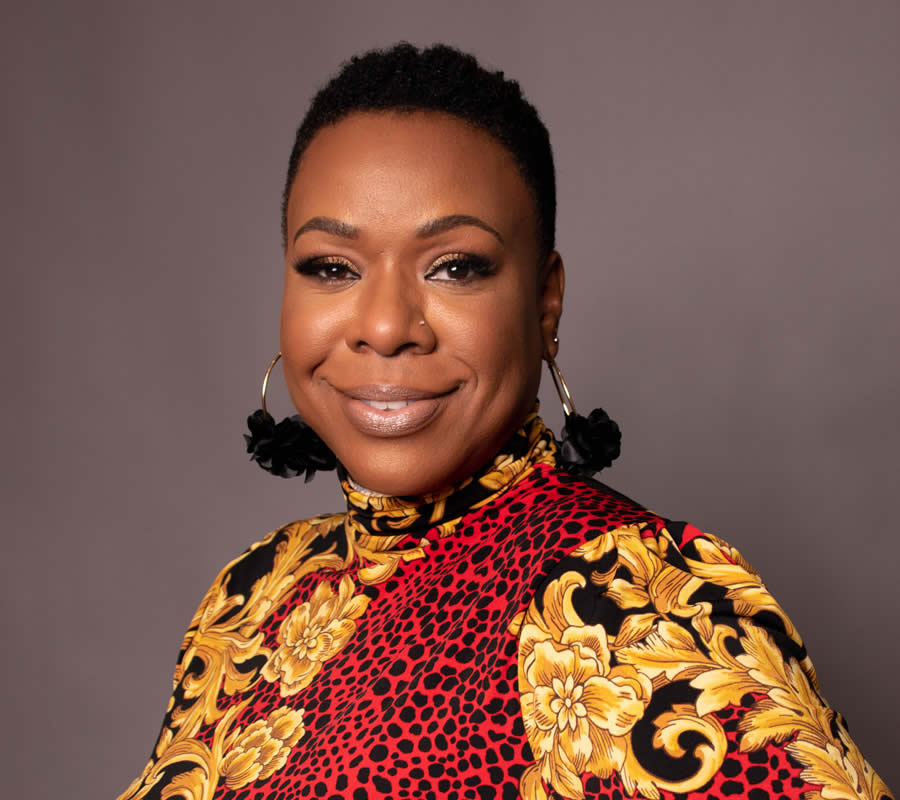
Jelani Day was a 25-year-old graduate student majoring in speech pathology attending Illinois State University. His body was found more than 60 miles from campus.
“We all know the names Natalie Holloway, Laci Peterson, Chandra Levy, Caylee Anthony, Elizabeth Smart, Gabby Petito, but no one knows the names Relisha Rudd, Ariana Fitts, Daniel Robinson, and the list goes on and on,” she said.
She started the foundation nearly 14 years ago with her sister-in-law, Natalie Wilson. She said the inspiration behind it was Tamika Huston, a young Black woman who went missing in her hometown of Spartanburg, S.C., in 2004.
She said missing Black and Brown children are often classified as runaways, and law enforcement tends to link criminal behavior or activity to missing Black and Brown adults.
“That really dehumanizes and desensitizes the fact that this is someone’s brother, sister, mother, father, son, daughter. So, we see the disparity there from law enforcement. And then when it goes to the media, the decision makers in the newsroom, they don’t look like us,” she said. “Oftentimes, our stories are overlooked. They’re not told because it gives a sense that we don’t matter. And the community simply can’t come out and say anything if they don’t know anything. And so that’s why awareness is key.”
Faith and healing
The Robinson family has been holding out faith that Daniel is found. “My family is holding on the best they can. We’re still wishing and keeping faith that somehow, that my son will be found alive. That’s always been our focus and our faith, so we’re going to try to hold on to that,” Mr. Robinson said.
He said Daniel’s mother has been in a lot of pain, and that she and her spouse are in South Carolina waiting for answers.
“My children, of course his siblings, they’re taking it very hard. That’s their little brother. So of course, I don’t allow them on searches for the obvious reason,” he said. “I have one daughter here in Phoenix, but she’s not allowed to come out on searches for obvious reasons. If my son is found in a different kind of way, she doesn’t need to see that. So, I keep her away from that kind of danger of seeing something that she doesn’t need to see or hearing something that she doesn’t need to hear.”
As for Mr. Robinson, he has been keeping his sanity by just staying focused. “I have to, because if I don’t, nobody will. I’m his father, I have to make sure to look out for him,” he said.
He chalked his focus up to his military training. “The mission comes first. I put my son as a mission. He’s my mission; he comes first. I have to put aside certain things and make sure I stay on task. So, that helps a lot,” he said. “And of course, with our faith. Collectively, our whole family, we’re a people of faith, and we know God and we lean on Him for strength.”
A’ishah Muhammad, the Student National Auditing Coordinator of the Nation of Islam, spoke to The Final Call on the pain of injustice, saying, “Until we have justice, we’ll never be in a place where we can feel peaceful.”
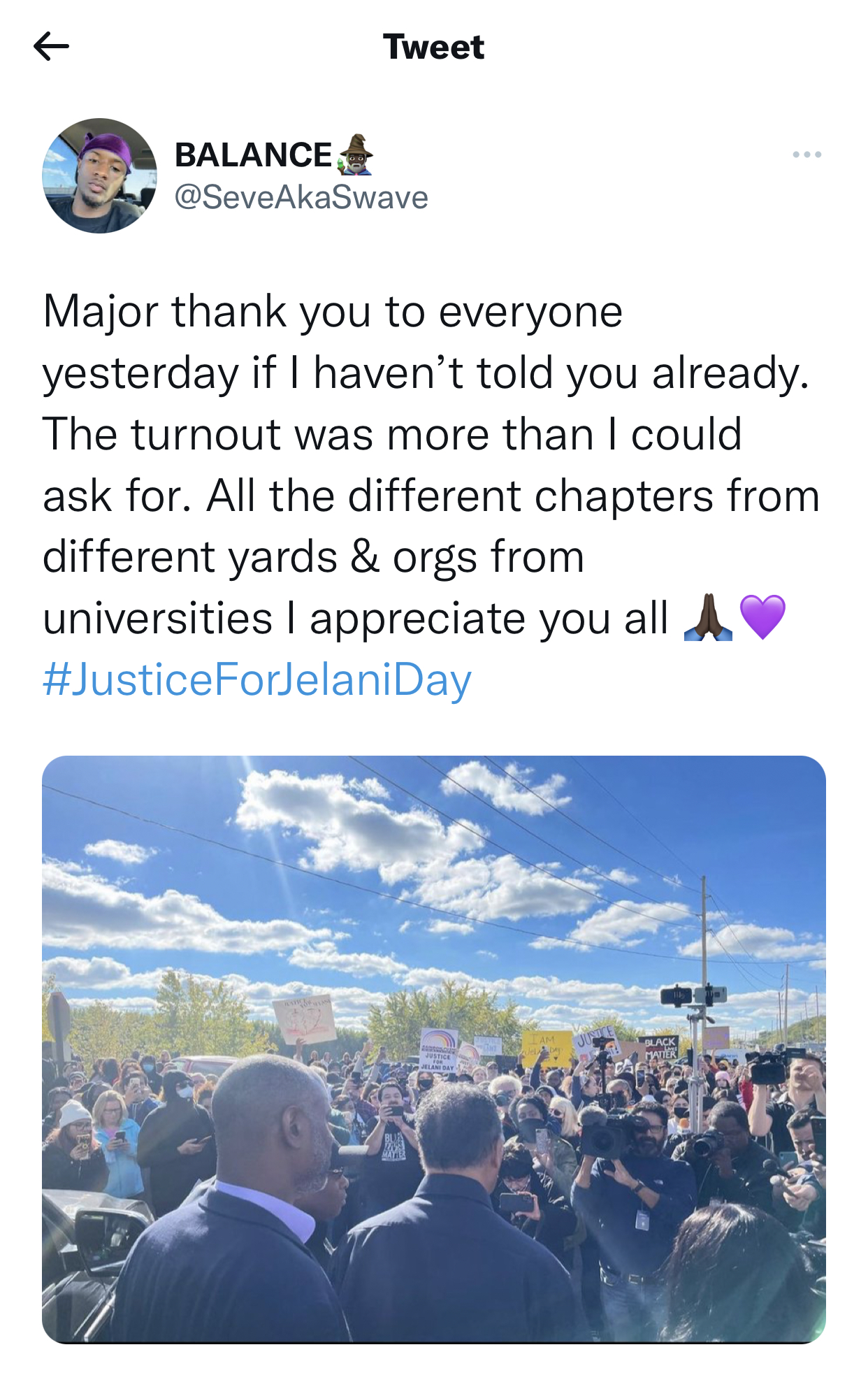
She said everyone has the responsibility to not be silent and to get the word out when someone is missing.
“It really is the responsibility of us to do everything within our power and understand that Allah God is the ultimate Judge, and He is the one who has force and power,” she said. “We still have to do our part, but we also have to submit to whatever His will is not by succumbing, not by laying down but by saying that I have done everything that I could with the help of Allah,” Ms. Muhammad said.
Ms. Wilson described how much of a toll missing loved ones take on families. “It takes a huge toll on families, just not knowing. Not knowing if their loved one is hungry, if they’re cold, if they’re being mistreated, if they’re ever going to walk through the front door again. So it has that lasting effect,” she said. “But at the same time, we want to encourage families to continue to hang on to hope. We want them to remain hopeful and know that they’re not in this by themselves.”
She and her organization encourage parents to have conversations with their children on the dangers out in the world. “We need to make sure as adults we have pictures of ourselves, of our family members and of our loved ones, because that’s very vital. There are definitely things you can do like self-defense classes. Just trying to be proactive. We have to check on our elders,” she said.
She also said more conversations on mental health, domestic violence and human trafficking need to take place.
A’ishah Muhammad said it is possible to heal from trauma. She said when a loved one goes missing, family members may learn to manage and navigate, but that healing starts with Allah (God).
“It’s the attitude and the perspective we bring to pain that can help us to get through,” she explained. A technique called auditing is a tool to help deal with those things that have happened to individuals that may be traumatic.
Dianetics auditing is a tool the Honorable Minister Louis Farrakhan introduced to the Nation of Islam to help Black people get rid of some of the traumas of past experiences. Ms. Muhammad used the analogy of when people are in physical pain, many times, they don’t want to look at or touch the painful area.
“That’s how we are with our emotional pain. We don’t want to touch it. We want to leave it there. And some people want to leave it there because they feel like they are betraying their loved ones if they try to diminish or reduce it or erase it,” she said.
She explained that auditing walks people through those painful moments. “At first, you don’t want to touch this hard truth when your loved one was taken. The day you found out, when you realized someone in your life is no longer here, made their transition. You can’t even bring yourself to enunciate. You struggle through it,” she explained.
She described the search for those who have been taken as a lifetime struggle. “But wouldn’t it be better if we could be in a clearer mind and able to see beyond our pain that will make us to be more rational and to be able to make decisions that are more logical as we go about our investigating, so that we don’t succumb to it?” she said. “We won’t fall victim to our pain.”
For more information on the search for Daniel Robinson, visit searchfordaniel.org.












